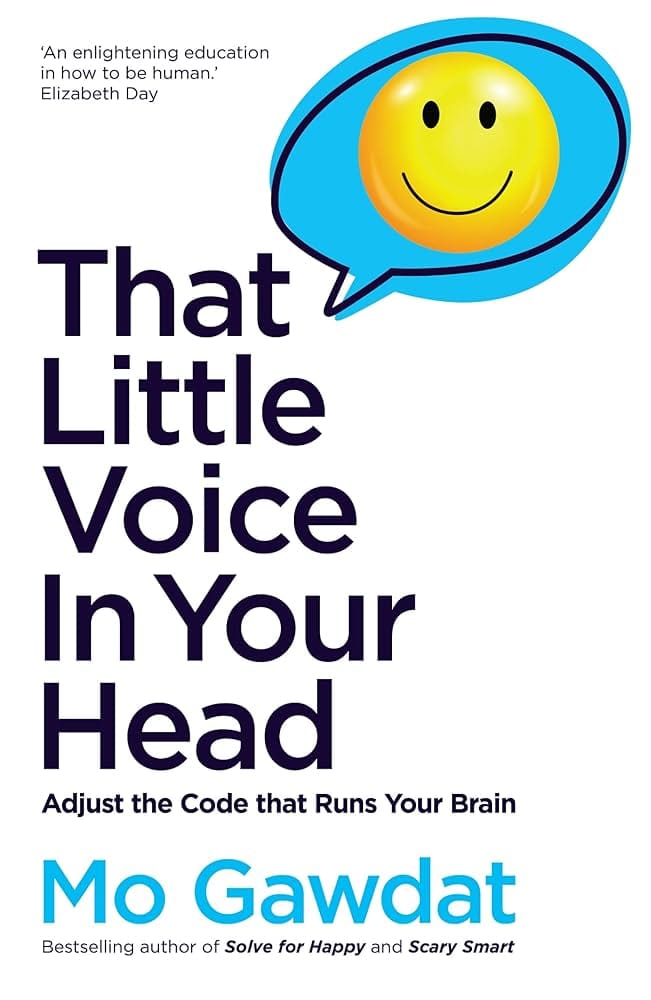Your Truth Is Not the Only Truth

Questioning What We Believe: Why Our Truth Is Not the Only Truth
Our beliefs are shaped by our experiences, fears, the media, and our interactions on social platforms. In his book That Little Voice in Your Head, Mo Gawdat suggests that much of what we accept as “truth” is actually just perspective—a viewpoint formed by what we’ve allowed into our minds. What we hold as true is often limited by our experiences and conditioning, and recognising this can help us respect the perspectives of others rather than trying to change them.
The Many Influences on Our Belief Systems
Beliefs aren’t born in a vacuum. They come from the patterns we recognise, the experiences we’ve had, and the information we consume. Social media and news can have a huge impact, reinforcing certain beliefs by exposing us repeatedly to content that confirms what we already think. For example, if we fear uncertainty, we might be drawn to information that reinforces that fear, leading us to believe that the world is more threatening than it might actually be.
This phenomenon is compounded by what psychologists call cognitive bias, where we unconsciously seek out ideas that match our own and ignore those that don’t. Cognitive bias gives us a false sense of certainty, reinforcing the belief that our perspective is “the truth” rather than simply one way of seeing things. Add to this the effects of distractions and negative self-talk, and we end up reinforcing beliefs that don’t necessarily serve our happiness or our understanding of others.
But as Mo Gawdat reminds us, it’s crucial to question these beliefs. Just because something seems true to us doesn’t make it universally true. Every person’s “truth” is shaped by their unique background, culture, and experiences, and acknowledging this can help us move away from judgment or confrontation and towards mutual respect.
Why We Should Respect Different Perspectives
If our truth is simply our perspective, then the same must be true for others. When someone holds a different belief, it’s not necessarily wrong; it’s simply a reflection of the way they see the world. Attacking someone for their beliefs only creates more division, pushing us further from understanding and cooperation. Instead, we can respect the fact that every person’s beliefs are valid from where they stand.
This doesn’t mean we have to agree with everyone we meet. It just means that we can choose to listen, to be curious about their view of the world, and to remember that our beliefs aren’t the absolute measure of reality. By acknowledging that others have their own perspectives, we make space for a more peaceful, open-minded approach to discussion.

Inspired by That Little Voice in Your Head, here are three steps to begin challenging our own beliefs and embracing a more open-minded mindset today:
1. Limit Media Exposure and Curate Your Inputs
Choose the content you consume wisely. Consider setting boundaries around social media and news intake, and actively seek out sources that challenge your current beliefs rather than reinforce them. By diversifying our input, we’re more likely to see beyond our own viewpoint and question biases we might not have realised we had.
2. Ask Yourself, “Is This Really True?”
When a strong belief or judgment arises, take a step back and ask: “Is this really true, or is it just true from my perspective?” Mo Gawdat’s approach encourages this simple yet profound question, which can help reveal when we’re holding onto ideas that may not be universally valid. Questioning our assumptions is a step toward seeing situations and people with a clearer, more open mind.
3. Create Space for Empathy and Listening
Rather than debating or defending your perspective, practice active listening. Try asking questions like, “What experiences led you to this belief?” or “How does this belief affect your life?” This not only deepens mutual respect but also enriches your own understanding of the world. Allowing yourself to listen without judgment can lead to a calmer state of mind, as you free yourself from the pressure of always having to be right.
Recognising that our beliefs are shaped by our own perspective—and that they’re not necessarily “the truth”—can help us cultivate a calmer, more open approach to life. Instead of feeling threatened by other viewpoints, we can respect the vast diversity of human experience.
Let’s embrace the possibility that the more we question our beliefs, the closer we get to true understanding, acceptance, and happiness.





Member discussion